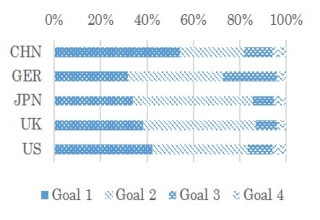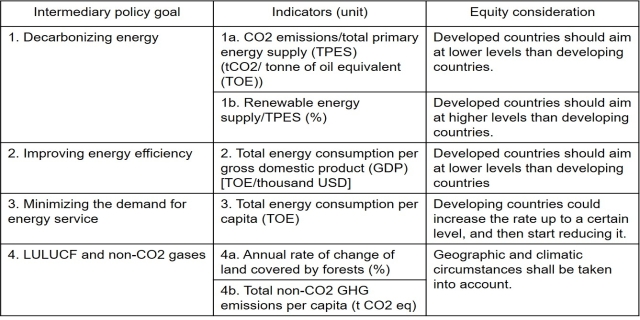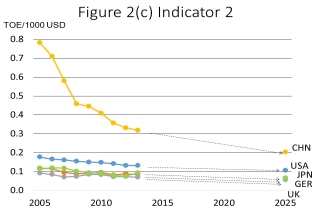Information of Paper
Authors:Kameyama, Y., Kawamoto, A.
Year:2016
Information of Journal:Climate Policy
Link to the paper
Abstracts
This study aimed to evaluate climate mitigation policy packages in various countries’ nationally determined contributions by introducing four intermediate policy goals: decarbonizing energy, improving energy efficiency, reducing demand for energy services, and enhancing carbon sinks and reducing emissions of non-CO2 gases. The methodology was examined by using data of China, Germany, Japan, the United Kingdom and the United States. Climate mitigation policies introduced between 1990 and 2015 in the five countries were categorized into four intermediate policy goals (Figure 1). Six indicators were introduced to measure actual outcomes, each representing one of the four intermediate policy goals (Table 1, Figure2). A comparison between the policy categorizations and the indicator outputs led to the conclusion that the number of policies implemented partially reflects the countries’ efforts to achieve specific policy goals, even though the stringency of each policy was not taken into account. This comparison was also useful in identifying key policies that were effective in achieving policy goals, even if there was a relatively small number of policies. The methodology was useful in generating policy recommendations to fulfill all the four intermediate goals in a balanced manner.







